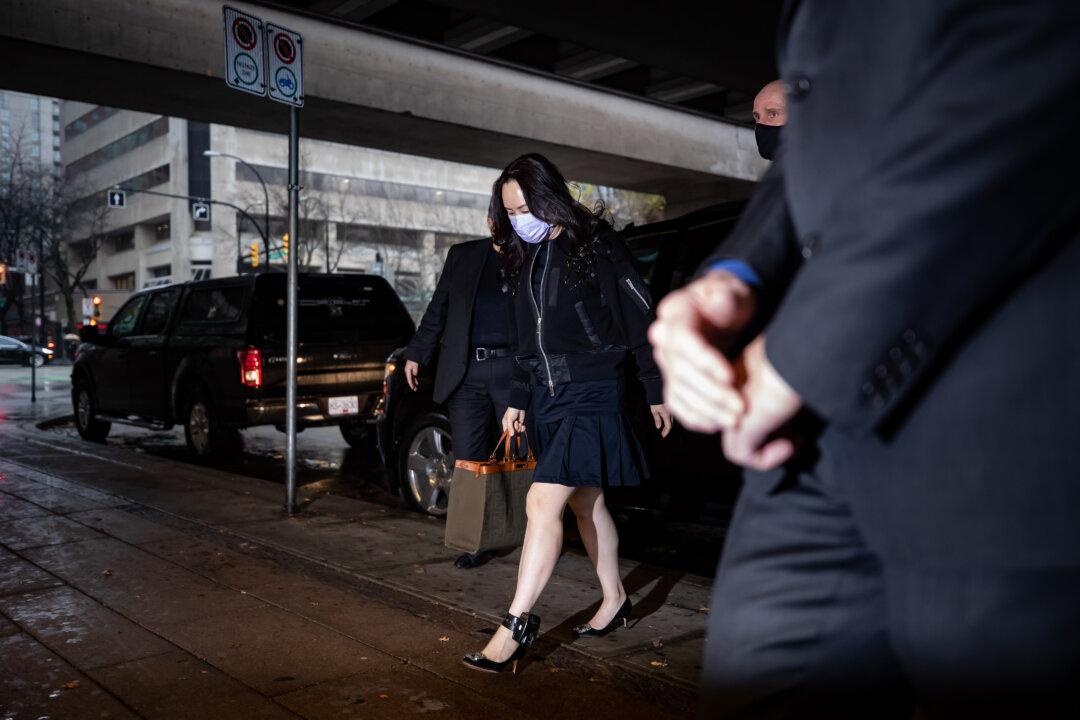The RCMP officer who took custody of Meng Wanzhou’s electronic devices when she was arrested in 2018 said he did not render passcodes to the U.S. Federal Bureau of Investigation.
Const. Gurvinder Dhaliwal told Crown prosecutor John Gibb-Carsley during the court hearing on Nov. 23 that he did not give identification information on Meng’s laptop and phones to the FBI, and neither did any of his RCMP colleagues.





